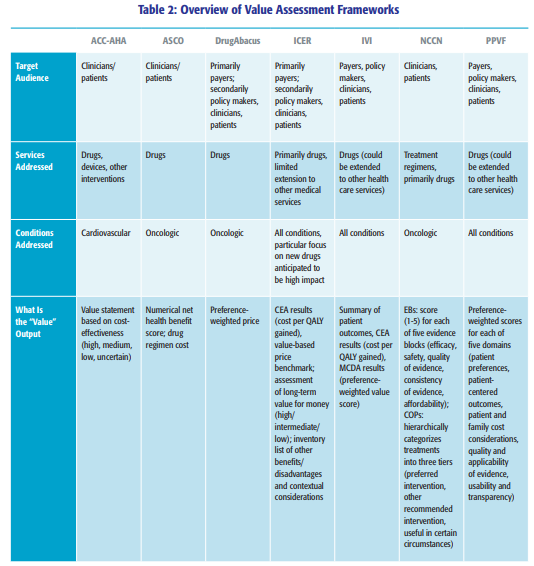A recent report by the National Pharmaceutical Council provides an overview of seven different value frameworks. Specifically, the overview includes value frameworks developed by:
- American College of Cardiology and the American Heart Association (ACC-AHA),
- American Society of Clinical Oncology (ASCO),
- Avalere/FasterCures Patient-Perspective Value Framework (PPFV)
- Innovation and Value Initiative (IVI) Open-Source Value Project (OSVP)
- Institute for Clinical and Economic Review (ICER),
- Memorial Sloan Kettering Cancer Center (DrugAbacus),
- National Comprehensive Cancer Network (NCCN)
The paper has a number of nice comparison tables, including the following.
The study also finds that the value assessment tools are influential. In a 2019 survey of 534 payers, 76% of respondents had previously used an ICER report, 24% had used the NCCN Evidence Blocks, 7% had used the ASCO framework, and 5% had used ACC-AHA. Other value frameworks (i..e., DrugAbacus, PPVF) had <2% use and IVI was not included in the survey.
Department of Veterans Affairs Pharmacy Benefits Management Services, CVS Caremark and the New York Medicaid program, among others, have publicly announced their use of ICER’s analyses to inform their decision-making
The report, however, notes limitations of many of these frameworks including: a lack of patient centeredness, lack of transparency (with the notable exception of IVI), focus on evidence largely from clinical trials, a focus narrowly on pharmaceuticals, and either confusing output or output that provides a false sense of precision.
In short, while there has been much progress on the value assessment front in the US in recent years, there is much work left to be done.
